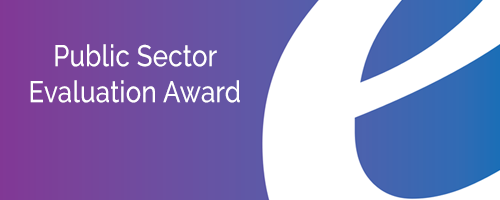The evaluators from the Department of Health Centre for Evaluation and Research Evidence (CERE), Urbis, Cox Inall Ridgeway Aboriginal Researchers, and Karen Milward Consulting conducted a highly collaborative and ethical evaluation which met stakeholder needs in a highly political and contested context.
The evaluation was conducted in a culturally safe manner through inclusion of Aboriginal evaluators in the team, engagement with Aboriginal service providers in a manner that supported their autonomy. The data was analysed and interpreted by Aboriginal people, and these data are held and retained by Karen Milward Consulting and Cox Inall Ridgeway. In this way, the evaluation practice was consistent with data sovereignty principles. The nomination contains strong endorsements a variety of perspectives - from decision maker to policy analyst to service provider to evaluator. The evaluation has led to changes in the Victorian response to public intoxication, specifically in the commissioning, relationship management and support to Aboriginal service providers, increased cultural safety of the overall program, improved governance to ensure independent oversight (including through Aboriginal experts), better cross-agency coordination, and better service demand and delivery management. The blended team is an innovative approach, and especially important in the health sector and in a programming area as sensitive as this (public intoxication). As noted in the nomination: 'The CERE as the in-house team retained responsibility for stakeholder liaison and scoping/scope containment. The Aboriginal co-lead external team brought valuable skill diversity as well as experience and existing relationships with many of the community service organisations, and provided additional resourcing that was not available through the in-house team alone'.
About the Public Sector Evaluation Award
This Award recognises exemplary evaluation work conducted within the Australasian public sector that has been used to effect real and observable changes in policies or programs. It recognises the work of all the partners of the evaluation: those who commissioned it, conducted it and implemented its findings.
Work conducted by contractors, consultants or academics employed and managed by a public sector agency is eligible for nomination. However, work conducted wholly by external consultants, academics or contractors without management or oversight by a public sector agency is not eligible.
For the purposes of this Award, the Australasian public sector is defined as the executive branch of government (including quasi-autonomous bodies) at the local, state and national levels, or the administrative arm of the judiciary.
Nominations for this Award must demonstrate that at least one of the following elements was conducted within the Australasian public sector:
- design of the evaluation and evaluation instruments
- fieldwork
- data analysis
- reporting.
Nominations focusing on evaluation systems within public sector agencies will not be considered for this Award; they should be submitted under the Evaluation Systems Award.
Nominations need to explicitly demonstrate how the evaluation work has created observable changes in public sector policies and/or programs.
Nominations need to include evidence showing how the changes have occurred as a result of the process of evaluation or as a result of the evaluation’s findings. Although the changes need not have occurred immediately, nominations will demonstrate a probable causal link between the evaluation process or products, on the one hand, and the changes in policies and/or programs, on the other.
Nominators’ assertions about the extent and nature of the changes created by the evaluation must be supported by documentary evidence, including statements from third parties who are familiar with those changes in policies or practices.

